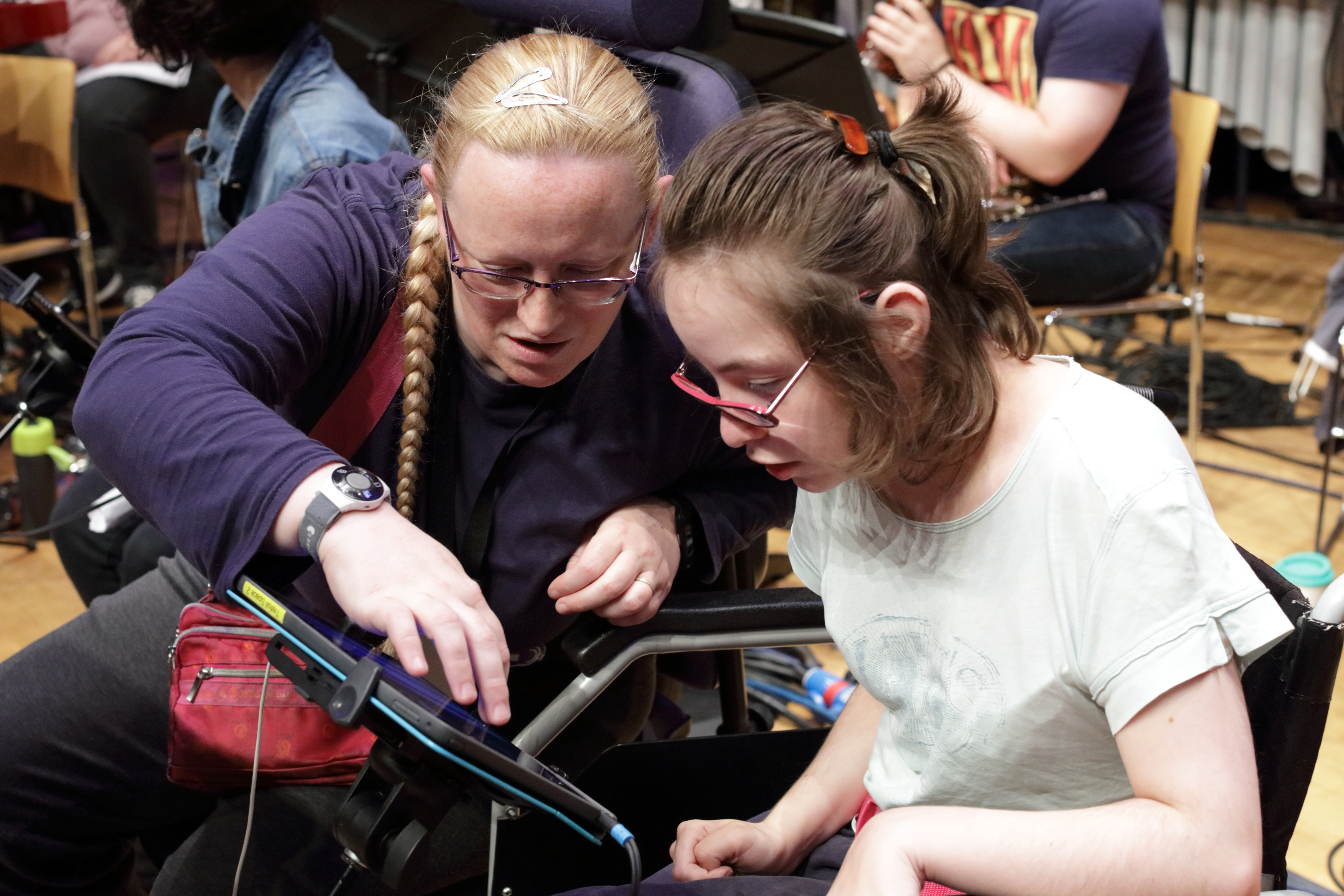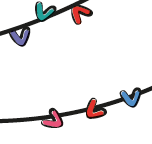"When their stories find expression, our whole society is enriched"
Drake Music Scotland provides music-making opportunities for people with disabilities across Scotland. For our Members' Spotlight, Thursa Sanderson tells us about innovative music technology and the importance of inclusion in the arts
The invention or adaptation of technological solutions for disabled people is an area where innovation and practical value come together. For example, neuro technology was originally used for pilots. Now, it can be used to pick up facial muscle movement to play music. At Drake Music Scotland we use a range of interfaces that allow those with very limited movement or co-ordination to play music. We want to enable our participants to control their pitch, volume, tempo and rhythm and play with expression, like all musicians.
There’s no denying that learning to play a musical instrument benefits all learners, no matter what age they are. Research has found that it improves literacy, numeracy, communication and social skills, confidence, self-esteem, inclusion, a sense of responsibility, identity… the list goes on!
Last year was fantastic for us. We won Charity of the Year at the Scottish Charity Awards and our Digital Orchestra flew to Singapore to perform at the True Colours Disability Arts Festival for an audience of over 10,000. Last year also marked our 20th anniversary, which we commemorated with a whole host of events, including a sold-out 20th Anniversary Concert.
In terms of recognition of disabled people’s creativity as an essential part of the wider cultural scene, the performing arts in Scotland do seem to be forging ahead. Some disabled-led companies are widely known, such as Birds of Paradise Theatre Company, which is appearing at this year’s Edinburgh International Festival, and Lung Ha Theatre Company which is made up of actors with learning disabilities, and performs at the Traverse Theatre and tours major venues.
But it is still quite a patchy picture. The recent ‘What’s Going On Now’ Report on young people’s music-making in Scotland notes there are significant inequalities in access to music.
If you think of the range of musical experiences involved in learning to play an instrument and make music, it goes right back to starting at an early age.
If music teachers are met by children that have a disability that means they can’t play a conventional musical instrument, or have a learning disability and can’t read music, or have ADHD and need to move around, do they know how to deal with that? If young people are (unintentionally) excluded, they are unlikely to keep up any musical interest and may even switch off entirely.
At Drake Music Scotland we think in terms of teaching difficulties rather than learning difficulties. We work with teachers, students and musicians who want to make their practice more inclusive, using resources such as Figurenotes (the colour-and-shape based music notation system). Our hope is that encouraging teachers to embrace inclusive practices will encourage more young disabled people to express themselves through music.
The music created by young people at Drake offers an insight into living with a disability that has been so far under-represented. Recently, an audience member at our Cryptic Nights event in Glasgow said: “I thought it was going to be all about the technology, electronic music that I didn’t get, but it wasn’t at all. It was about the human stories and deeply felt emotions.” It was so encouraging to hear this. Music really is emotion, organised into some sort of structure to carry it along.
The creative arts and music are what make life worth living in so many people’s lives, contributing to our health and wellbeing. Our basic needs may be provided for, but what about the quality of life, our mental health, our sense of community, our identity? All of that is bound up in the ways we interact with others and express ourselves through shared activity, often creative activity.
For disabled people who may encounter barriers to their involvement in a range of social and cultural activities, it is highly important that their experiences, stories and ideas have a voice and a route for expression – our whole society is enriched by that.
We’d love to see disabled performers being visible on stages at the Edinburgh International Festival, Celtic Connections, and TRNSMT Festival. But also at the other end of the scale – because this has to happen in order for the above to happen – for every early years practitioner to feel confident doing music, for all primary schools to have music as an everyday part of the life of the school.
Drake Music Scotland aims to be a catalyst for realising the vision for Scotland to be the best place to grow up, by having the most inclusive music education system in the world.
We hope we’re fulfilling that aim. One of our participants recently said, “Drake Music Scotland has changed my life forever”, so you can’t really get better than that!
Thursa Sandersom is Chief executive of Drake Music Scotland
Read the full content in our creative arts special edition of Children in Scotland magazine, click here to buy a print copy or subscribe to the magazine for a year by contacting jdrummond@childreninscotland.org.uk

